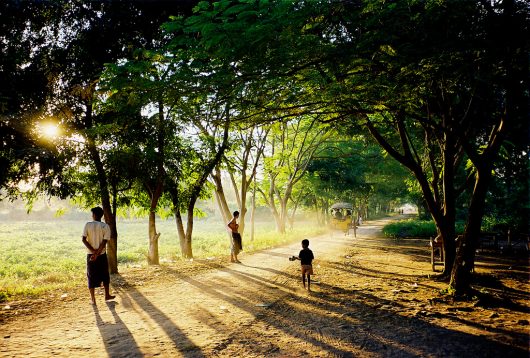New Insurgency in Myanmar: Examining What Is an Insurgency

There has been an uptick in an insurgent group activity in Myanmar the past few months. A new insurgency group within the Rohingya community named Harakah al-Yaqin has been carrying out attacks in the Rakhine state. This is a small yet important economic area within Myanmar that has a large Muslim population located within a country that is mainly Buddhist.
According to a Stratfor report, the Rohingya have long been a marginalized group in Myanmar society. They are not granted full citizenship and are accused of not being Myanmar at all, but rather recent Bengali immigrants.
The group demands are more ethnic-based rather than being steeped in political Islam. They are asking for government recognition as citizens and equal rights, but with no mention of Sharia law which differentiates them from other Islamist insurgencies. The scope of what is an insurgency depends on what the goal of that group ends up being.
With insurgencies varying from movement to movement, it is important to determine what is an insurgency. A recent paper by Aaron Young & David Gray seeking to define the term looks at likely causes and examines possible solutions. They believe that an insurgency is bound to political constraints. They define what is an insurgency by the challenging of these political aspects:
- The integrity of borders and composition of the nation-state
- The political system
- The authorities in power
- The policies that determine who gets what in societies
They believe that terrorism is only an option utilized by insurgencies if they fail on achieving their political goals. Over the years, though, the inclusion of guerilla warfare and terrorist tactics have served the purpose of demoralizing their opposition which can sometimes equate to an accelerated victory of their political goals.
Gray reports that “through proper management of social services and welfare programs, the needs of insurgent masses can be met. Only by the willingness of cooperation by the state and insurgent forces can a unified agreement be reached, considering that is a goal of the organization.”
Economic factors are important to squash an insurgency according to Mr. Gray. His research has led him to believe that by including indigenous and minority groups into economic development instead of complete control by the ruling party can be key to defeating the underlying current of an insurgency. And that the only way an insurgency can continue is if economic conditions remain the same or worsen. He states “by increasing regional utilization and production of viable resources, unemployment reductions, giving the masses both a sense of control of their own destinies and increases in the distribution of wealth has the effect of reducing strife and discontent.”
The Myanmar government reportedly has very little interest in including the Rohingya population into future economic growth. There are politically motivated fears that any softening towards the Muslim population may lead to a change in power facilitated by an angry Buddhist majority electorate. Young & Gray would argue the exact opposite approach to ending the unrest currently occurring in Myanmar.
– Brian Faust
Photo: Flickr
